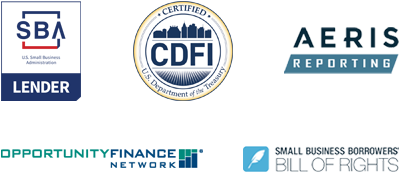Early Friday afternoon the House approved a $2 trillion Emergency Aid Stimulus Package, approved earlier in the week by the Senate. The 887-page stimulus package bill, known as the Coronavirus Aid, Relief, and Economic Security Act (CARES Act) hopes to boost the economy, bolster medical care facilities, and incentivize businesses to keep employees on their payrolls. President Trump has indicated he would sign an approved bill into law immediately.
What government officials are saying about the CARES Act…
[one_third]“….wartime level of investment for our economy…”
Mitch McConnell, Senate Majority Leader [/one_third]
[one_third]“…the single largest main street assistance package in the history of the United States…”
Larry Kudlow, Director of the National Economic Council[/one_third]
[one_third]“…urgently needed to bolster the economy, provide cash injections and liquidity and stabilize financial markets…”
Larry Kudlow[/one_third]
As details are finalized and released, we’ll update this page and outline the expected impact of the package for our community.
Key Elements
The stimulus package includes a $349 billion loan program, known as the Paycheck Protection Program, to help small businesses (including eligible non-profit, veteran-owned, and tribal businesses) maintain and manage their staff and ongoing operational costs during the economic downtown resulting from the coronavirus crisis. In addition, $10 billion will be appropriated for additional SBA Economic Injury Disaster Loan Grants and Advances – helping move funds to businesses faster.
Mountain BizWorks expects to be part of the lending team supporting our community through this program. More details to come.
Here’s a rundown of the highlights of the CARES Act…
Establishes Paycheck Protection Program
The Paycheck Protection Program is an incentive program encouraging small business owners to keep employees on the payroll that:
- Creates $349 billion fund to be distributed as SBA7(a) loans
- Offers loans of up to $10 million for companies with no more than 500 employees with a formula tied to payroll costs to determine the actual loan amount (some exceptions are outlined in full text)
- Mandates that funds be used specifically to protect payroll may be eligible to reduce the amount of payback necessary on the loan
Allowable uses of this loan include:
- Payroll support
- Employees salaries
- Paid vacation, sick, medical, parental, or family leave
- Insurance premiums
- Mortgage, rent and utility payments
- Interest on debts incurred prior to this loan
Borrowers are required to make a good faith certification that:
- They will use the funds for the purposes stated in the program
- The funds are necessary due to the current economic conditions created by coronavirus crisis
- They are not receiving duplicative funds from another SBA loan
The program is designated for small businesses. It does include sole-proprietors, independent contractors, and other self-employed individuals as eligible.
It waives affiliation rules for businesses in the hospitality and restaurant industries, franchises that are approved on the SBA’s Franchise Directory, and small businesses that receive financing through the Small Business Investment Company program.
Lenders will determine eligibility based on whether the business was open as of February 15, 2020, and had employees for which it paid salaries and payroll taxes or paid independent contractors (instead of its ability to repay debt – which is unable to be determined in a crisis).
The program:
- Applies to loans made under this program from February 15 to December 31, 2020
- Increased type 7(a) loan guarantees to 100% through December 31, 2020
- Waives borrower and lender fees for participation in this program
- Waives “credit elsewhere” test for these funds
- Waives collateral and personal guarantee requirements for these funds
- Has a maximum interest rate of 4%, no prepayment fees
- Has 10-year terms with guarantees remaining in effect for any funds not used for forgiveness purposes
- Allows complete deferment of 7(a) loan payments for at least 6 months and not more than 1 year
$10 Billion for Emergency EIDL Grants
Individual grants, or advances, on pending EIDL Loan applications, up to $10,000. – Section 1110
Directs $25 million for the SBA to offer resources and services in the 10 most commonly spoken languages, other than English – Section 1111
Allows for federal grant funds appropriated to support the State Trade Expansion Program (STEP) in FY 2018 and FY 2019 to remain available for use through FY 2021 and allows participants to be reimbursed for losses due to coronavirus within limits. – Section 1104
Provides $17 Billion for Subsidy for Certain Loan Payments
Existing 7(a) (including Community Advantage), 504, or microloan products Paycheck Protection Program (PPP) loans are not covered. – Section 1112
Increases the maximum loan for a SBA Express loan from $350,000 to $1 million through December 31, 2020, after which point the Express loan will have a maximum of $350,000. Requires Veteran’s fee waivers for the 7(a) Express loan program to be permanently waived. – Section 1102
Caution: There are several specific conditions, exceptions, and parameters included in the complete bill language that should be considered and reviewed. As the final details emerge, your lender can help you determine actual eligibility and qualifications.
